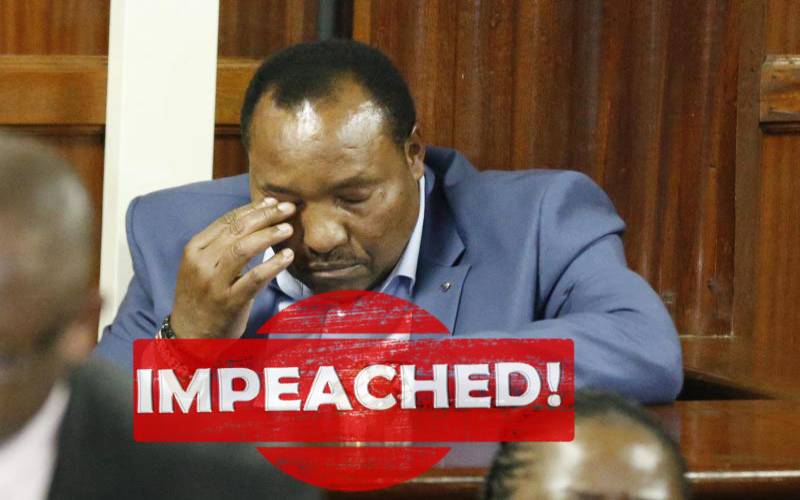×
The Standard e-Paper
Kenya’s Boldest Voice

Under-siege Kiambu Governor Ferdinand Waititu's fate lies with the Senate. [File, Standard]
Yesterday, embattled Kiambu Governor Ferdinand Waititu became the second governor to be impeached after Members of the County Assembly accused him of graft.